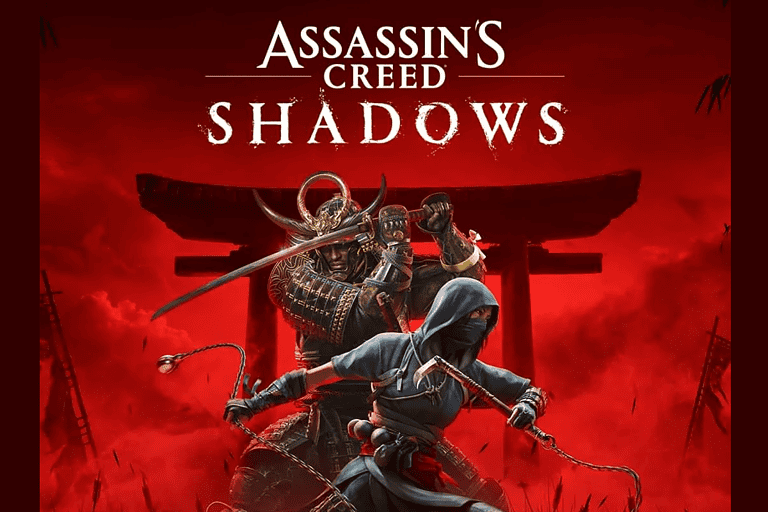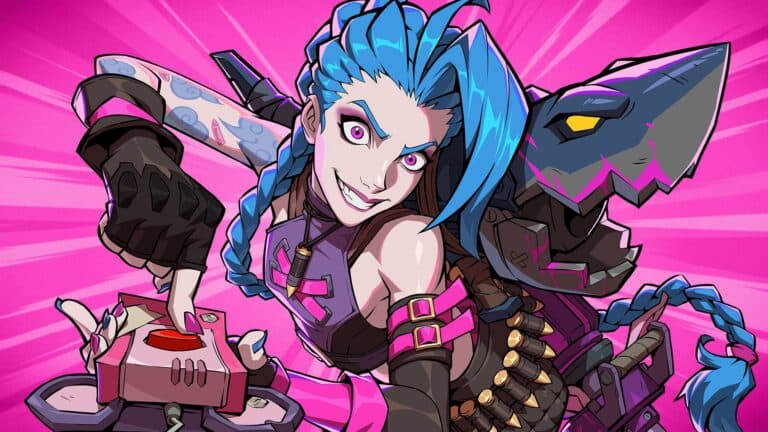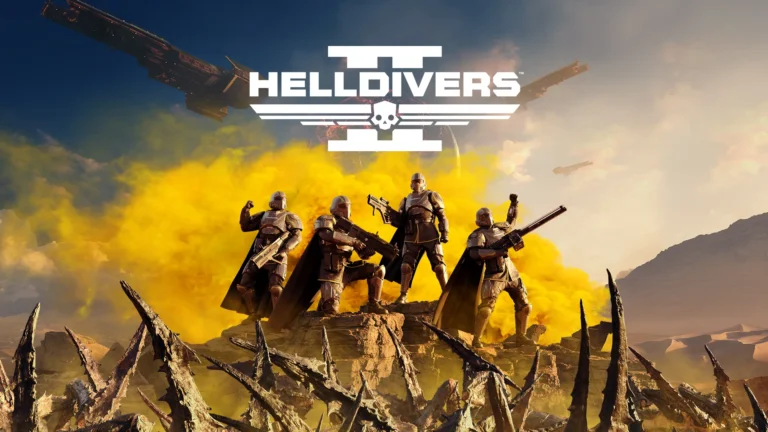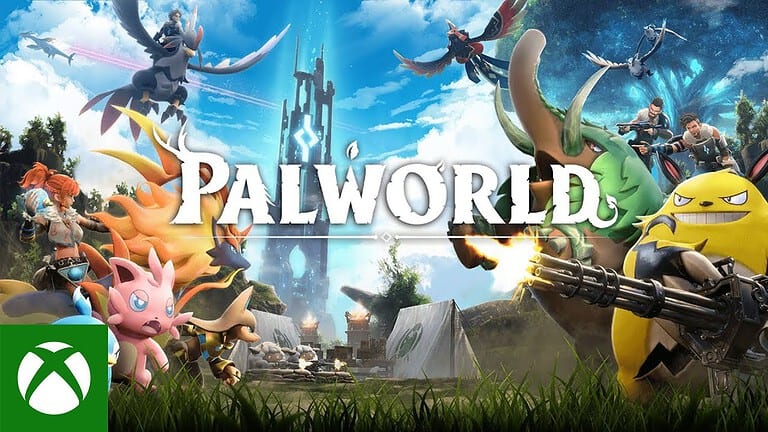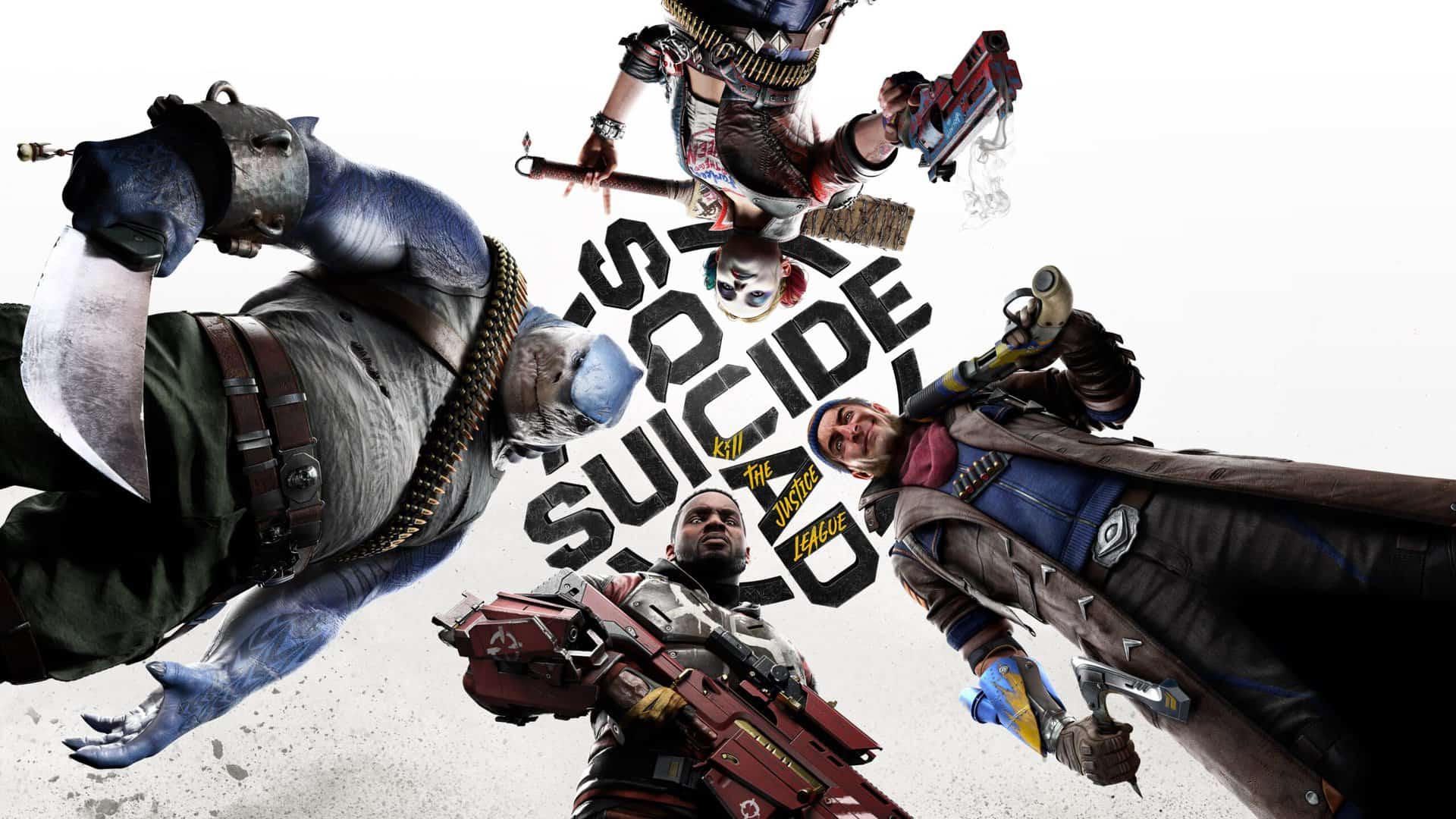
Suicide Squad: Kill the Justice League went through a challenging development process before its release. The game, created by Rocksteady Studios, faced many delays and issues. It was originally set to launch in 2022 but was finally released in February 2024 after significant changes. Rocksteady, known for the Batman: Arkham series, had high expectations when they announced Suicide Squad: Kill the Justice League. This action-adventure shooter features well-known DC villains like Harley Quinn and Deadshot and offers a new approach to the superhero genre.
However, the game’s release was not smooth. It dealt with delays, controversies, and a mixed reception when it launched, which left fans wondering what went wrong. Players take on the role of DC villains who must save Metropolis from Brainiac. The game allows for solo or cooperative play in an open world. The core characters include Harley Quinn, Deadshot, Captain Boomerang, and King Shark, with more villains joining later.
Upon release, critics had mixed opinions. They praised the combat and voice acting but criticized the live-service features and repetitive missions. Despite its struggles, Suicide Squad: Kill the Justice League provided a fresh look at the DC Universe by putting villains against corrupted heroes. Ultimately, the game had trouble defining its identity. It tried to appeal to both single-player and live-service players but ended up disappointing both groups. Even with Rocksteady’s reputation and the appeal of Suicide Squad characters, the game did not capture the success of their past work and became a lesson in mismatched expectations and design choices.
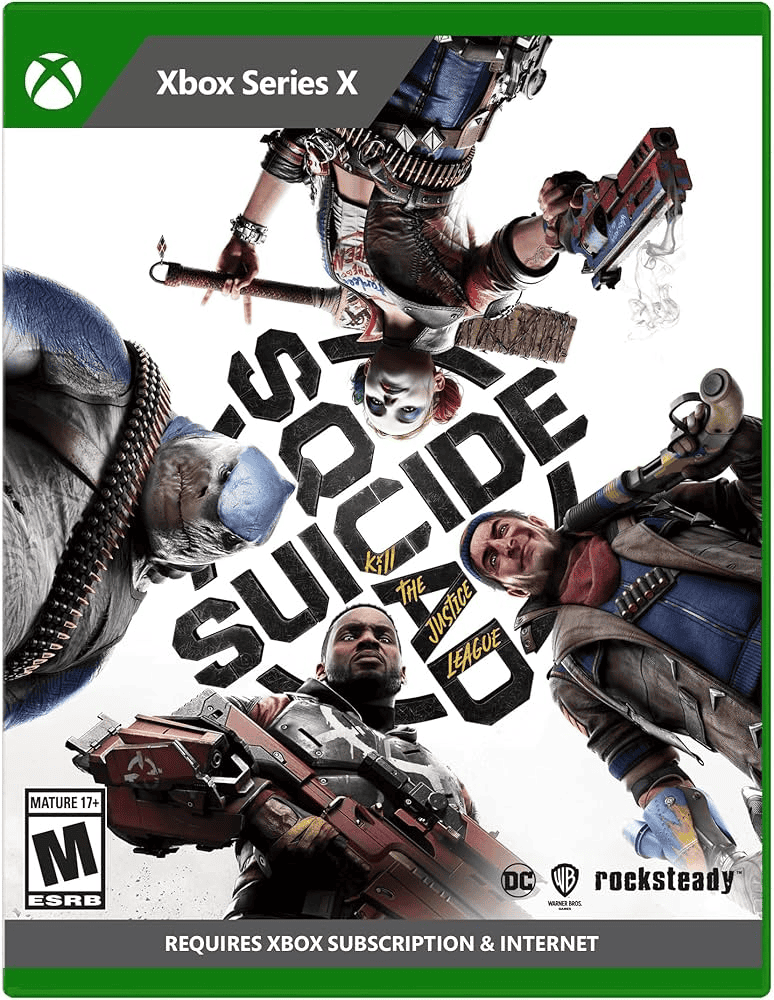
The Tumultuous Journey of Suicide Squad: Kill the Justice League
Suicide Squad: Kill the Justice League has had a rocky road. This action-adventure shooter from Rocksteady Studios (the creators of the Batman: Arkham series) has seen delays, controversies, and shifts in direction. Let’s break down what’s happened.
Why Was It a Flop?
Several factors led to the game’s disappointing performance.
- Live-Service Fatigue: Many gamers grew tired of the live-service model, which focuses on grinding for progress, loot boxes, and battle passes. “Suicide Squad” relied heavily on these features, pushing away players who wanted a stronger story experience.
- Always-Online Requirement: The game required an internet connection, even for single-player mode. This concerned players about accessibility and whether they could play it long-term.
- Lackluster Gameplay: Although players praised the combat and movement, the overall gameplay felt repetitive and uninspired. The looter-shooter elements didn’t fit well with the characters and setting.
- Mixed Marketing: The game’s marketing messages were inconsistent. They switched between focusing on the story and characters and emphasizing the live-service features. This confusion failed to generate excitement.
- Technical Issues: At launch, the game faced bugs, glitches, and performance problems, which further hurt the experience for players.
Initial Announcement and Delays
- August 2020: Rocksteady reveals the game at DC FanDome, with a planned 2022 release.
- March 2022: The game is delayed to early 2023.
- April 2023: Another delay pushes the launch to February 2, 2024.
- Further Delays: The Epic Games Store version faces additional delays, eventually landing on March 26, 2024.

Gameplay Controversies
- Always-Online Requirement: Rocksteady confirms that the game needs an internet connection at all times, even for single-player, sparking backlash from fans.
- Live-Service Elements: Features like a battle pass, gear score, and loot system are revealed, leading to concerns about the game’s focus on live-service elements over a strong single-player experience.
- Gameplay Showcase: A gameplay reveal receives mixed reactions, with some praising the combat and traversal, while others criticize the repetitive gameplay loop and looter-shooter mechanics.
Shifting Direction
- Kevin Conroy’s Passing: The game features Kevin Conroy’s final performance as Batman before his death. This adds an emotional layer to the game and its marketing.
- Story Focus: Rocksteady emphasizes the game’s narrative, highlighting the Suicide Squad’s struggle against Brainiac’s mind control and their complex relationships with the Justice League.
- Post-Launch Content: The developers promise ongoing support with new playable characters, missions, and weapons, suggesting a long-term plan for the game’s evolution.
Current State and Outlook
Despite the controversies and delays, Suicide Squad: Kill the Justice League remains a highly anticipated title. Rocksteady has a strong track record with the Batman: Arkham games, and many fans are eager to see their take on the Suicide Squad. The game’s success will likely depend on how well it balances its live-service elements with a compelling single-player campaign and whether it can capture the essence of these beloved DC characters.
| Game | Suicide Squad: Kill the Justice League |
|---|---|
| Developer | Rocksteady Studios |
| Release Date | March 26, 2024 (Epic Games Store) |
| Platforms | PC, PS5, Xbox Series X/S |
| Genre | Action-adventure shooter |
Other Games Featuring the Suicide Squad
If you’re looking for other ways to experience the Suicide Squad in video game form, there are a few options:
- Batman: Arkham Origins (2013): While not playable, the Suicide Squad makes a brief appearance in this prequel to the Arkham series.
- Suicide Squad: Special Ops (2016): A free-to-play mobile game where you play as Harley Quinn, Deadshot, and Diablo.
- Lego DC Super-Villains (2018): This Lego game allows you to play as various DC villains, including members of the Suicide Squad.
- Gotham Knights (2022): While not directly featuring the Suicide Squad, this game explores the Batman universe and includes characters like Harley Quinn who have been associated with the team.
Key Takeaways
- Suicide Squad: Kill the Justice League launched in February 2024 after multiple delays
- The game features an open-world Metropolis and playable DC villains
- Reception was mixed, with praise for combat but criticism of live-service elements
Game Background and Development
Suicide Squad: Kill the Justice League emerged from Rocksteady Studios’ successful Arkham series. The game blends the familiar Arkhamverse with new elements, creating a unique superhero experience.
Origins and Evolution of the Concept
Rocksteady Studios, known for their Batman: Arkham games, chose to explore a different side of the DC universe. The idea for Suicide Squad: Kill the Justice League came from a desire to expand beyond Batman’s world.
The game was first announced at DC FanDome in August 2020. It takes place in the same universe as the Arkham series but shifts focus to villains as playable characters. This concept allowed Rocksteady to create a fresh narrative while building on their established lore.
Development faced challenges, including delays. The original release target was 2019 or 2020, but the game needed more time. These setbacks gave the team room to refine their vision and adapt to player feedback.
Rocksteady’s Vision and the Arkham Series Legacy
Rocksteady aimed to create a game that both honored and expanded upon their Arkham series. Sefton Hill, co-founder and creative director, played a key role in shaping the project’s direction.
The studio wanted to maintain the high-quality gameplay and storytelling of their Batman games. At the same time, they sought to innovate with new mechanics and a multiplayer focus. This balance proved tricky, leading to extended development time.
Suicide Squad: Kill the Justice League incorporates elements familiar to Arkham fans. The game features similar combat systems and movement mechanics. However, it adds new dimensions with its four-player cooperative gameplay and shooter elements.
The game’s ties to the Arkhamverse allow it to build on established storylines and character relationships. This connection gives depth to the world while offering a new perspective on familiar heroes and villains.
Characters and Plot
Suicide Squad: Kill the Justice League features a diverse cast of villains and heroes. The game pits Task Force X against a brainwashed Justice League in a high-stakes battle for Metropolis.
Task Force X’s Key Members
Harley Quinn, Deadshot, King Shark, and Captain Boomerang form the core of Task Force X. Each character brings unique abilities to the team. Harley Quinn uses acrobatics and explosive weapons. Deadshot excels at long-range precision shots. King Shark provides brute strength and melee attacks. Captain Boomerang specializes in teleportation and boomerang-based combat.
Amanda Waller oversees the squad’s mission. She manipulates the team through explosive devices implanted in their heads. This ensures their compliance with her orders.
The Antagonists: Brainiac and the Justice League
Brainiac serves as the main villain. He has taken control of Metropolis and brainwashed the Justice League. Batman, Superman, Wonder Woman, Flash, and Green Lantern become formidable foes for Task Force X.
The squad must face and defeat each Justice League member. This involves unique boss battles tailored to each hero’s abilities. For example, Flash’s speed and Green Lantern’s constructs present distinct challenges.
Lex Luthor surprisingly aids Task Force X in their mission. His knowledge proves crucial in the fight against Brainiac and the corrupted heroes.
Gameplay and Features
Suicide Squad: Kill the Justice League offers fast-paced combat and an expansive open world. Players can expect intense battles, team-based gameplay, and a rich environment to explore.
Combat Mechanics and Multiplayer Elements
The game features a dynamic combat system that blends gunplay with unique character abilities. Players can switch between four squad members: Harley Quinn, Deadshot, Captain Boomerang, and King Shark. Each character has distinct weapons and skills.
Multiplayer is a key focus, supporting up to four-player co-op. Teams can coordinate attacks and combine abilities for powerful combos. Solo players can switch between characters on the fly, with AI controlling the rest of the squad.
The game includes a gear system for customizing weapons and abilities. Players can unlock new items through gameplay or purchase them using in-game currency.
Exploration of Metropolis and Easter Eggs
Metropolis serves as the game’s open-world playground. Players can traverse the city using character-specific movement abilities, such as Harley’s grappling hook or King Shark’s powerful jumps.
The city is filled with side missions, collectibles, and hidden references to DC Comics lore. Easter eggs reward observant players with nods to other characters and events in the DC universe.
Environmental hazards and destructible elements add depth to gameplay. Players can use the city’s infrastructure strategically during combat encounters.
Seasons and DLC are planned to expand the game world and add new content over time. These updates may introduce new playable characters, missions, and gear options.
Impact and Reception
Suicide Squad: Kill the Justice League generated significant buzz and controversy upon release. The game’s reception was mixed, with praise for certain elements but criticism for others.
Critical Analysis and Gamer Feedback
Critics and players had varied opinions on Suicide Squad: Kill the Justice League. Some praised the game’s combat mechanics and character interactions. Others found fault with the live-service elements and repetitive gameplay loops. The story received mixed reviews, with some appreciating the bold narrative choices while others felt it didn’t live up to expectations.
Player feedback on online forums highlighted concerns about microtransactions and the game’s longevity. The inclusion of a battle pass system drew particular criticism from longtime fans of Rocksteady’s single-player experiences. Technical issues at launch also impacted early reception.
Cultural Influence and Future Prospects
The game’s portrayal of iconic DC characters sparked discussions among comic book fans. The post-credits scene paid tribute to the late Kevin Conroy, honoring his contributions to the Batman legacy. This emotional moment resonated with many players and critics alike.
Warner Bros. Games faced challenges in positioning Suicide Squad: Kill the Justice League within the broader DC Multiverse. The game’s reception may influence future DC-related video game projects. Industry analysts speculate on potential adjustments to the live-service model for upcoming titles.
Rick Flag’s role in the story became a talking point among fans, with debates about character development and narrative choices. The game’s impact on the Suicide Squad franchise remains to be seen, as studios gauge player engagement and feedback for future content updates.
Frequently Asked Questions
Suicide Squad: Kill the Justice League has generated numerous questions among fans. The game’s release, characters, and content plans have been topics of interest.
When is the release date for Suicide Squad: Kill the Justice League?
Suicide Squad: Kill the Justice League launched on February 2, 2024. The game is available on PlayStation 5, Xbox Series X/S, and PC platforms.
Are there plans for a Season 3 of Suicide Squad: Kill the Justice League?
Rocksteady Studios has not announced plans for a Season 3 yet. The game currently offers post-launch content through battle passes for each season. These include free and premium tiers with cosmetic items.
Is Suicide Squad: Kill the Justice League available on PS4?
Suicide Squad: Kill the Justice League is not available on PlayStation 4. The game is designed for current-generation consoles and PC only.
Who are the playable characters in Suicide Squad: Kill the Justice League?
Players can control four main characters in Suicide Squad: Kill the Justice League. These are Harley Quinn, Deadshot, Captain Boomerang, and King Shark. Each character has unique abilities and playstyles.
Who is included in the voice cast of Suicide Squad: Kill the Justice League?
The game features a talented voice cast. Notable performances include Tara Strong as Harley Quinn and Kevin Conroy as Batman. Conroy’s role is particularly poignant as it was one of his final performances before his passing.
What are the details of the roadmap for Suicide Squad: Kill the Justice League?
Rocksteady has planned post-launch content for Suicide Squad: Kill the Justice League. This includes seasonal battle passes with cosmetic items. Free tiers are available to all players, while premium tiers require purchase. The roadmap may include new outfits, emotes, and character customization options.

